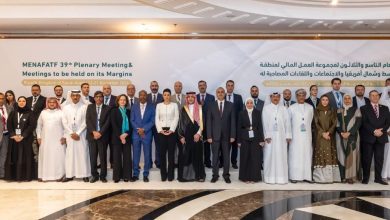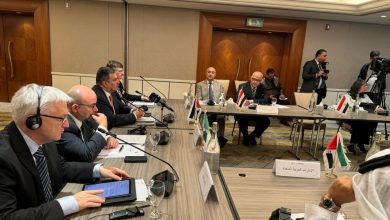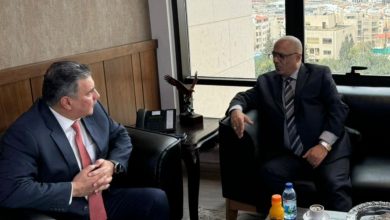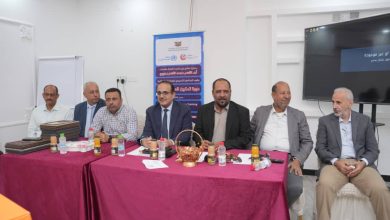Cabinet reviews topics, approves Aden refineries’ revival as free zone.
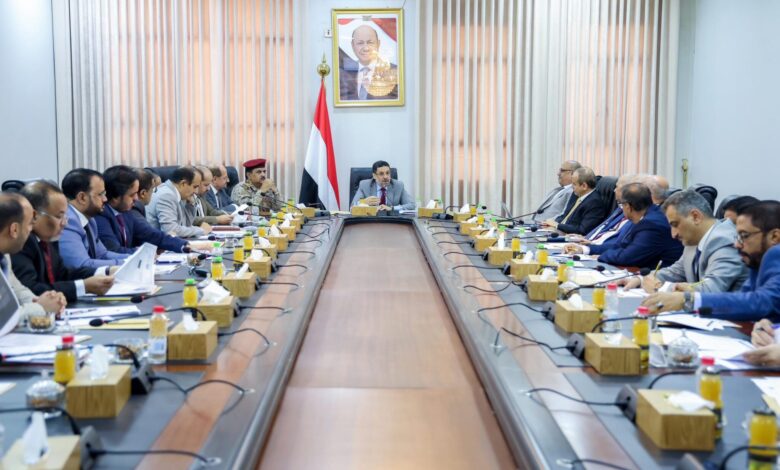
In a significant cabinet meeting held on Tuesday in the provisional capital of Aden, chaired by Prime Minister Dr. Ahmed Awad bin Mubarak, the Yemeni government deliberated on a range of topics and recent developments, primarily focusing on the political, economic, living, service, military, and security situations. The cabinet made several decisions and took measures concerning these matters.
The cabinet approved the restoration of Aden refineries’ activities as a free zone, allowing the Aden Refinery Company to operate under the free zone system since it falls within the Aden Free Zone Sector (N), as defined by the Prime Minister’s decision No. 65 of 1993 regarding the geographical locations and boundaries for implementing the free zone system in Aden city and its amendments. This decision aims to leverage the privileges, advantages, and guarantees stipulated by the Free Zones Law.
Furthermore, the cabinet directed the Ministers of Oil and Minerals, Finance, Legal Affairs, Transportation, the State Governor of Aden, and the President of Aden Free Zone to enact the decision. They were instructed to guide the relevant entities, each within its jurisdiction, to work according to the procedures established before the suspension of activities in 2015.
At the beginning of the meeting, Prime Minister Dr. Ahmed Awad bin Mubarak briefed the cabinet members on the overall developments and updates on political, military, security, economic, and service levels. He emphasized the importance of continuing and doubling government efforts during this phase, stemming from national, ethical responsibility, and commitment towards the Yemeni people across the nation. He stressed that no difficulties should impact the government’s performance and its duties towards serving citizens and alleviating their suffering, as well as its existential and decisive battle in completing the restoration of the state and ending the Houthi coup, whether through peace or war.
Dr. Ahmed Awad bin Mubarak directed the relevant ministries and authorities to focus on implementing the government’s priorities and main pathways, which include preserving the legal status of the state, combating corruption, enhancing accountability and transparency, financial and administrative reforms, resource development, and optimal use of foreign aids and grants. He affirmed that the strength and unity of the cabinet are crucial for facing existing challenges and emerging situations.
The Prime Minister reiterated the government’s determination to proceed with comprehensive economic, administrative, and financial reforms, expanding opportunities and areas of support and partnership in this regard with brothers and friends. He confirmed the government’s commitment to implementing the directives of the Presidential Leadership Council in dealing with new variables.
The cabinet was briefed by the Minister of Defense on the military situation of the armed forces across all formations, highlighting their high readiness to deter any escalation by the Houthi militias on various fronts and battlefields. The report pointed to the continuation of Houthi attacks on several fronts, which resulted in the martyrdom and injury of dozens of heroes stationed at the fronts in recent weeks, indicating their lack of seriousness in responding to peace efforts.
The cabinet commended the high combat readiness of the armed forces and supporting units that have firmly faced the Houthi terrorist militia on all fronts and battlefields. It hailed the legendary resilience and significant sacrifices of the heroes in various fronts who stand as a solid barrier against the Houthi enemy, affirming full government support for the armed forces to perform their duties optimally.
The government strongly condemned the Zionist entity’s aggression on the Hodeidah port and its violation of Yemeni sovereignty, in clear violation of all international laws and norms. It warned the Houthi militia against continuing to mortgage Yemen’s fate and its people, dragging them into its futile battles serving the interests of the Iranian regime and its expansionist project in the region. It also reiterated Yemen’s steadfast position on the Palestinian issue and its repeated calls for stopping the Israeli aggression against the Palestinian people, achieving their aspirations for security, stability, dignified life, and establishing their independent state with Jerusalem as its capital.
Additionally, the Minister of Defense and Head of the Supreme Security Committee provided the cabinet with an update on the circumstances and developments of the kidnapping incident of Colonel Ali Ashal. The security forces have gathered significant information, which will be disclosed to the public in a press conference in the coming days.
The cabinet praised the efforts of the Supreme Security Committee and the specialized agencies in this regard, emphasizing the completion of procedures and public disclosure, and exerting all efforts to maintain security, stability, and public tranquility.
The council also reviewed the economic, living, and service situation developments and the measures taken to alleviate the humanitarian suffering exacerbated by the Houthi terrorist militia’s attacks on oil facilities and international shipping lines, taking several actions concerning these matters.
The cabinet listened to the report by the Minister of Foreign Affairs and Expatriates on political developments, the government’s vision for dealing with regional and international changes, Yemeni movements in international forums, and the peace process. The council supported the UN, regional, and international efforts to launch a comprehensive political process that meets the aspirations of all Yemenis, emphasizing the importance of achieving comprehensive and fair peace based on the three agreed-upon national references, regionally and internationally supported, particularly resolution 2216. It called on the Houthi militia to act rationally, positively engage with peace efforts, stop the bloodshed, prioritize the Yemeni people’s interest over any other interests, and not to escape from internal and popular pressures and their living priorities towards catastrophic adventures, continuing to exploit the suffering of the Palestinian people and their just cause.
The cabinet was informed by the Minister of Public Health and Population about the epidemiological situation of acute watery diarrhea (cholera) cases, including measures taken to contain the outbreak, prevent its spread, and treat infected cases, and the required support to overcome challenges and obstacles in combating the spread of cholera.
The council affirmed its support for the efforts and measures of the Ministry of Health and the need for all ministries and relevant entities to work as one team to contribute to this, especially in awareness and preventive aspects. It called on international organizations to play their roles in supporting the Ministry of Health’s efforts to combat this epidemic.
To follow the news in Arabic
